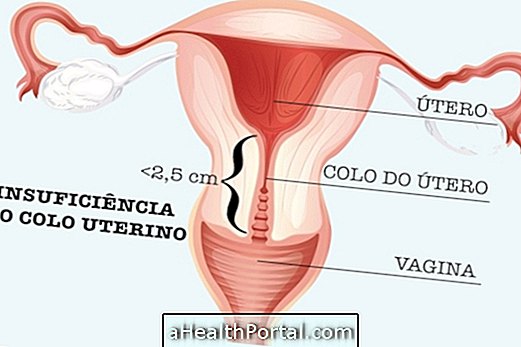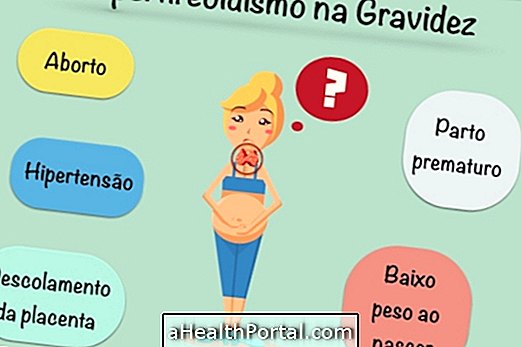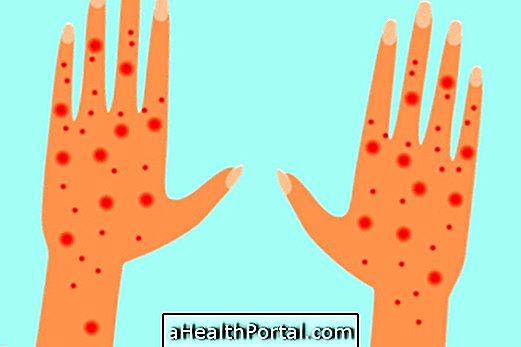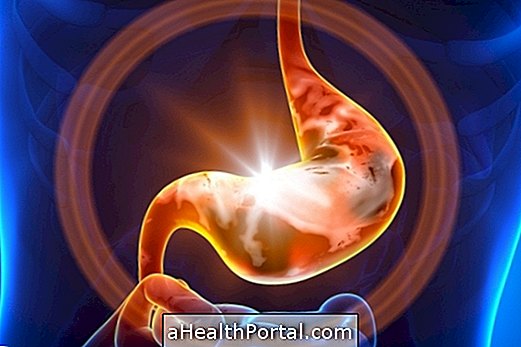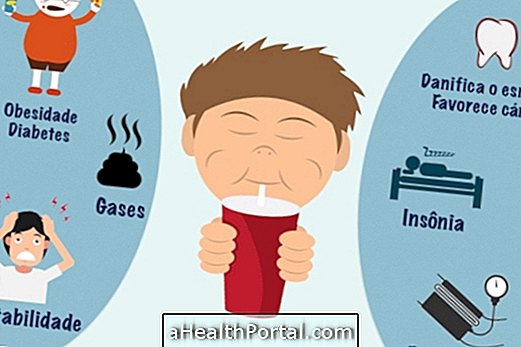The causes of spontaneous abortion are varied but may involve immune changes, the age of the woman, infections caused by viruses or bacteria, stress, cigarette use and also due to drug use.
Spontaneous abortion is when the gestation comes to an end before 22 weeks of gestation, and the fetus dies, without the woman having done anything she could control. Severe abdominal pain and vaginal bleeding during pregnancy are the main symptoms of miscarriage. Get to know other signs and symptoms, and what to do if you suspect an abortion by clicking here.
Main causes of spontaneous abortion
The following are the most common causes of natural miscarriage, a situation that can occur in any pregnant woman in early pregnancy:
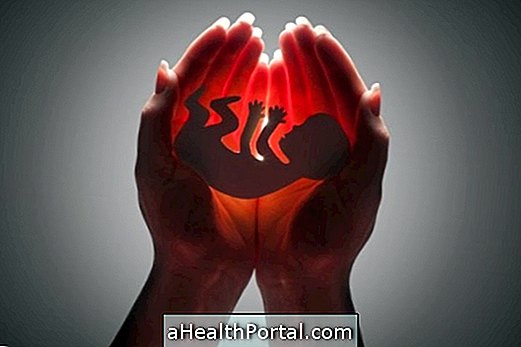
1. Problems in the uterus
Women's uterus formation accounts for up to 10% of miscarriages occurring spontaneously and within these changes, the most common is a condition called isthmic-cervical insufficiency. Other possible causes related to the uterus are when the woman has: uterus bicorny, septate, arched, deformation in the endometrium caused by the presence of polyps or fibroids that hinder the implantation of the embryo in the uterus.
How to treat: In some cases it may be necessary to undergo surgery to improve the anatomy of the uterus, allowing a healthy pregnancy until the baby is born.
2. Hormonal changes
Lack of progesterone is the most common cause of abortion caused by hormonal changes. This can happen when the woman uses hormonal medications without medical advice during pregnancy
How to treat: Take medicines that regulate the amount of progesterone in the bloodstream.
3. Thyroid diseases
Thyroid changes that can cause miscarriage are hyperthyroidism, hypothyroidism and also the presence of anti-thyroid antibodies.
How to treat: Hypothyroidism can be treated with the use of medications such as Propiltiuracil. Steroids may be useful for treating anti-thyroid antibodies.
4. Polycystic ovarian syndrome
Women who have this syndrome have difficulty ovulating and may not ovulate every month and in addition, have a near 50% chance of having a miscarriage
- How to treat: Some studies report that taking metformin during gestation may be helpful in avoiding a new miscarriage, but always under the indication of the obstetrician accompanying gestation.
5. Changes in the chromosome
When the chromosomes of the father and mother are not well formed and give rise to an embryo with some chromosomal alteration, the woman's body can reject this embryo, leading to spontaneous abortion. In this case, the father and mother are in good health and find no reason for the loss of the baby, but this cause represents 50% of miscarriages.
- How to treat: If the woman has more than 2 miscarriages, the couple should do tests to try to identify the cause of this repetition and also do a genetic test to learn more about their health. In this case genetic counseling can be very helpful.
6. Infections caused by viruses or bacteria
Some diseases that increase the risk of miscarriage are sexually transmitted diseases such as chlamydia, syphilis, mycoplasma and other diseases such as brucellosis and gonococci.
- How to treat: Use antibiotics prescribed by your doctor, after identifying which STD you have and the bacteria involved. Learn how to identify and treat common STDs.
7. Alcohol, cigarette and coffee in excess
Exaggerated consumption of alcoholic beverages during pregnancy and exposure to cigarette smoke and overconsumption of caffeine-rich foods such as coffee, black tea, and coca cola are also related to increased cases of miscarriage. The ideal amount of caffeine that can be consumed during pregnancy should not exceed 4 cups of espresso coffee per day. For more information, see here.
- How to treat: The solution is simple and consists of avoiding all these factors during gestation.
8. Autoimmune disease
When the father has an autoimmune disease there is a higher risk of miscarriage, even if the couple is in good health and has all normal exams. In this case the woman's body reacts to the presence of the embryo with a strange being, which begins to be attacked, leading to abortion.
- How to treat: Treatment can be done with a type of vaccine prepared specifically for each woman, containing parts of the partner's blood. She gets these vaccinations 2 or 3 times and does more tests to find out if her body no longer reacts to the man's cells and then gets ready for another attempt at pregnancy. Learn more about the abortion vaccine here.
9. Use of drugs
Taking medicines without medical advice can also cause miscarriage, so in case of pain or discomfort you should tell the obstetrician and do not take medicines on their own, or teas because some are contraindicated. See examples of drugs that can cause abortion by clicking here.
- How to treat: Do not take medicines without medical advice, especially if you are pregnant or trying to get pregnant.
10. Low weight or obesity
When the woman is very underweight or very overweight may also increase the risk of miscarriage because the body can understand that it is not in the best conditions for the proper development of the baby.
- How to treat: Must be accompanied by a nutritionist to know how to feed properly to ensure proper fetal development. See how many pounds you should gain weight in pregnancy.
What to do in case of suspected abortion
If you develop signs and symptoms such as severe abdominal pain and blood loss through the vagina, especially after intimate contact you should go to the doctor to perform tests such as ultrasound to see if the baby and the placenta are well.
The doctor may advise that the woman remain at rest and avoid close contact for 15 days, but analgesic and antispasmodic remedies may also be needed to relax the uterus and prevent contractions that lead to miscarriage.
What is the treatment for abortion?
The treatment varies according to the type of abortion the woman suffered, and may be:
Complete abortion
It occurs when the fetus dies and is completely eliminated from the uterus, in which case no specific treatment is necessary. The doctor can make an ultrasound to check if the uterus is clean and advise an appointment with a psychologist when the woman is very shaken. When a woman has previously had a miscarriage it may be necessary to do more specific tests to try to find the cause and prevent it from happening again.
Incomplete abortion
Occurs when the fetus dies but is not completely eliminated from the uterus, there are fetal or placental remains inside the woman's uterus, the doctor can indicate the use of medicines like Cytotec for complete elimination and then can perform a curettage or aspiration manual or with vacuum, to remove the remains of tissues and clean the woman's uterus, preventing infections.
When there are signs of uterine infection such as a foul odor, vaginal discharge, severe abdominal pain, rapid heartbeat and fever, which is usually caused by clandestine abortions, your doctor may prescribe antibiotics in the form of an injection and a uterine scrap. In more severe cases it may be necessary to remove the uterus to save a woman's life.
When to become pregnant again
After suffering an abortion the woman should receive professional psychological support from family and friends to recover emotionally from the trauma caused by the loss of the baby.
The woman may return to trying to conceive after 3 months of miscarriage, expecting the menstruation to return to normal, having at least 2 menstrual cycles or after this period when she feels safe again to try a new pregnancy.



